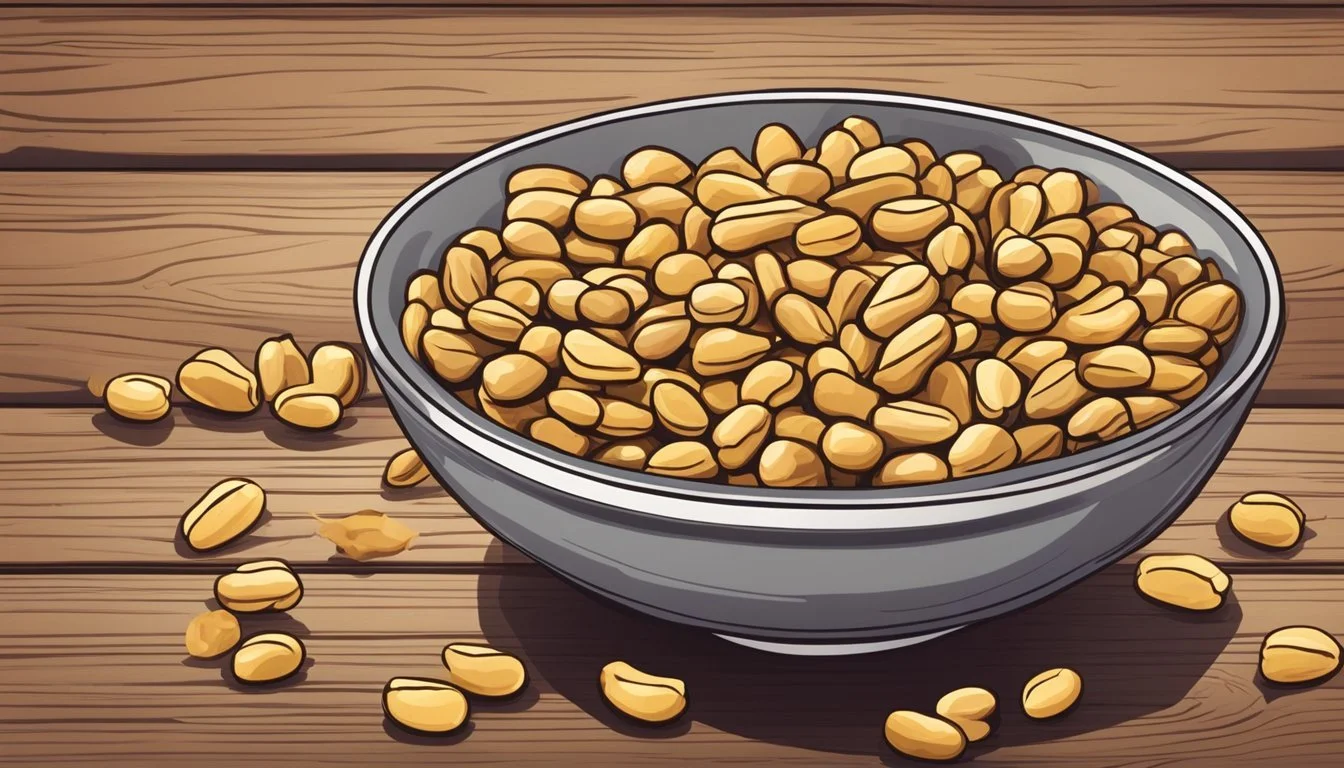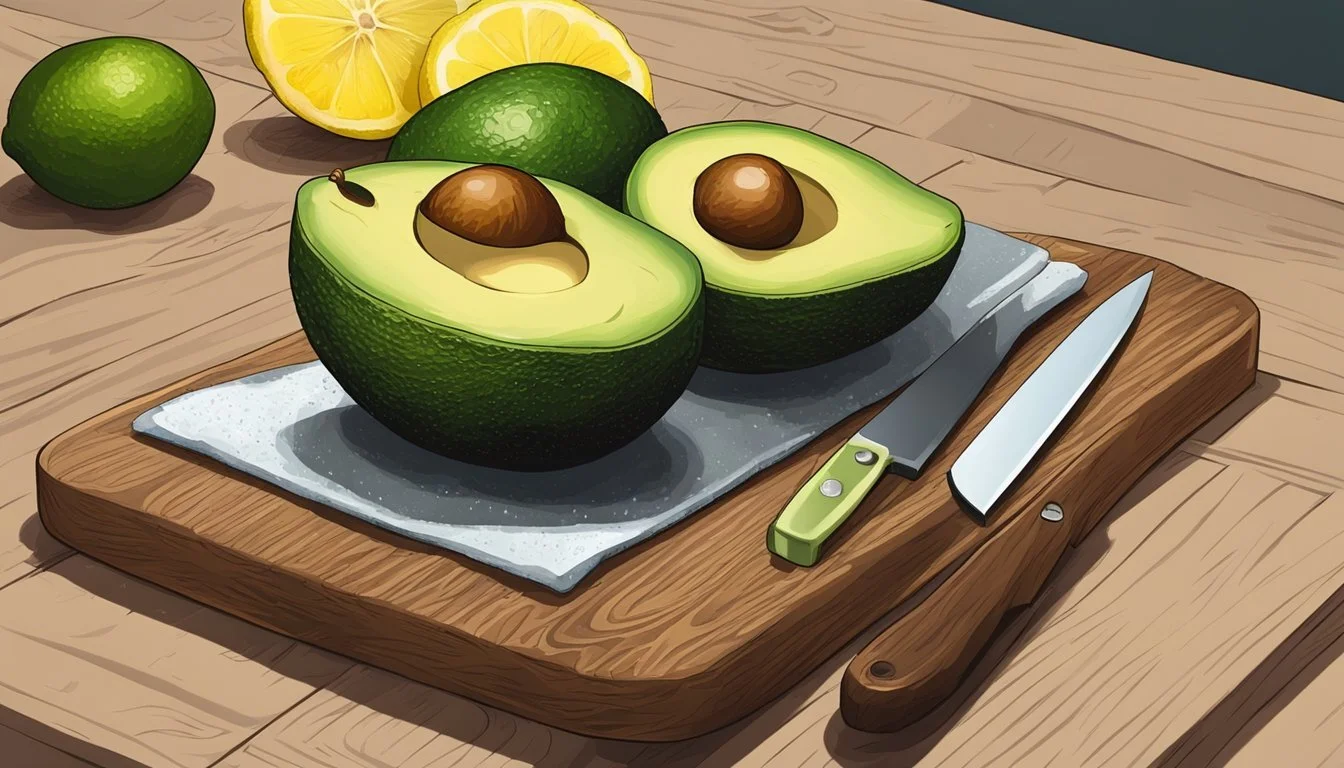Top 10 Foods Rich in Niacin (Vitamin B3) for Optimal Health
Essential Sources for Your Health
Niacin, also known as vitamin B3, is an essential nutrient that plays a key role in the body's metabolic processes, nervous system function, and cellular repair. It is a water-soluble vitamin, which means the body does not store it, making it vital to consume niacin-rich foods regularly to maintain adequate levels.
Understanding which foods are high in niacin can empower individuals to make healthier dietary choices and ensure the intake of this critical nutrient. With a diverse array of niacin-rich foods available, incorporating them into daily meals can support various bodily functions and overall well-being.
1) Chicken Breast
Chicken breast stands out as a significant source of niacin, making it an excellent dietary choice for those looking to increase their intake of this vital nutrient.
A cooked, boneless, skinless chicken breast provides a substantial amount of niacin. Specifically, an 85-gram serving contains approximately 11.4 mg of niacin.
In addition to its niacin content, chicken breast offers other nutritional benefits. It is rich in protein and also provides vitamins B6 and B12. This cut is popular not just for its nutritional profile but also for its versatility in various recipes.
Chicken breast can be incorporated into meals in multiple ways. Whether grilled, baked, or sautéed, it can be a part of a balanced diet.
Its lean nature makes it a preferred choice for those looking to maintain a healthy weight while still receiving essential nutrients like niacin.
In essence, chicken breast is a powerful nutritional asset for anyone aiming to boost their niacin intake effectively and deliciously.
2) Tuna
Tuna is a rich source of niacin, providing significant amounts of this essential B vitamin. A 5.8-ounce can of light tuna contains approximately 21.9 mg of niacin, exceeding the recommended daily allowance (RDA) for adults.
This makes tuna an excellent choice for individuals looking to boost their niacin intake through their diet.
In addition to niacin, tuna is also a good source of lean protein. This is beneficial for muscle repair and maintenance. Furthermore, it is low in saturated fats and provides omega-3 fatty acids that support heart health.
Tuna can be consumed in various forms, such as fresh, canned, or as part of dishes like salads and sandwiches.
Including tuna regularly in meals can help individuals meet their nutritional needs efficiently. Whether enjoyed grilled, in sushi, or in a casserole, tuna remains a versatile and nutrient-dense option.
3) Salmon
Salmon is an excellent food source of niacin, also known as vitamin B3. This nutrient plays a critical role in energy production and maintaining a healthy nervous system.
A 3-ounce (85-gram) serving of wild Atlantic salmon provides 53% of the recommended daily allowance (RDA) for men and 61% for women. These percentages illustrate just how nutrient-dense salmon can be.
Wild-caught salmon is preferable over farmed as it offers a richer nutritional profile. It not only contains higher levels of niacin but also omega-3 fatty acids, which are beneficial for heart health.
Salmon also provides other essential nutrients such as protein, vitamin D, and selenium. These contribute to maintaining muscle mass and supporting immune function.
Regular consumption of salmon can be part of a balanced diet that supports overall well-being. It is versatile, allowing for various cooking methods, including grilling, baking, and poaching.
4) Turkey
Turkey is a robust source of niacin, also known as vitamin B3.
A serving of cooked turkey breast, weighing around 3 ounces (85 grams), contains approximately 6.3 milligrams of niacin. Additionally, turkey is rich in tryptophan, an amino acid that can be converted by the body into niacin, potentially adding another milligram to the intake.
Including turkey in the diet can make it easier to meet the recommended daily allowance (RDA) of niacin. This makes turkey a valuable protein option for those looking to boost their daily vitamin B3 consumption. Turkey is also versatile in meal preparation, lending itself to various healthy dishes.
Besides niacin, turkey is rich in protein, making it a beneficial meat choice for muscle maintenance and overall health. It is a lean meat option, meaning it contains lower fat levels compared to other meats, further enhancing its health benefits.
5) Pork Chops
Pork chops are a nutritious and versatile option for those looking to increase their niacin intake. A cooked 3-ounce pork chop provides about 42% of the daily value for niacin, making it an excellent source of this essential vitamin.
Lean cuts of pork, such as pork chops, are particularly high in niacin compared to fattier cuts. Choosing lean pork chops over fattier options can maximize the benefits and nutritional content. These cuts are also low in fat, which supports a healthier diet.
Aside from niacin, pork chops also provide important nutrients like protein, iron, and zinc. These nutrients contribute to overall health and support bodily functions such as muscle growth and immune system function.
Pork chops can be prepared in various ways, including grilling, baking, or broiling, making them a convenient and tasty addition to meals. They pair well with a wide range of vegetables and grains, allowing for culinary creativity while maintaining a nutrient-rich diet.
6) Peanuts
Peanuts are an excellent source of niacin, also known as Vitamin B3. Two tablespoons of peanut butter contain approximately 4.3 mg of niacin. This amount is roughly 25% of the recommended daily allowance (RDA) for men and 30% for women.
Peanuts provide a plant-based option for those seeking to increase their niacin intake. Besides niacin, peanuts are also rich in protein and healthy fats, making them a nutritious snack.
Including peanuts in one's diet can contribute to overall nutritional health. They are versatile and can be easily incorporated into various meals, such as salads, stir-fries, or simply enjoyed on their own.
7) Sunflower Seeds
Sunflower seeds are a nutritious snack that offers a good amount of niacin, also known as vitamin B3. They contain approximately 3.8 milligrams of niacin per 100 grams, providing about 19% of the daily value.
These seeds are not just high in niacin. They are also rich in vitamin E, magnesium, and healthy fats. This makes them an excellent choice for promoting overall health.
Sunflower seeds can be enjoyed in various ways. They can be eaten raw, roasted, or added to recipes like granola and trail mix. Their mild flavor and crunchy texture make them versatile and easy to incorporate into different meals.
Eating sunflower seeds may aid in maintaining healthy skin and supporting metabolism. The niacin content helps convert food into energy, contributing to overall well-being.
Including sunflower seeds in the diet is simple. They make for a convenient snack and can also be sprinkled on salads, oatmeal, or yogurt.
8) Brown Rice
Brown rice is a nutrient-dense food that serves as a good source of niacin.
One cup of cooked brown rice provides approximately 5.2 milligrams of niacin. This quantity contributes significantly to the daily niacin requirements for both men and women.
Brown rice isn't just high in niacin; it also offers heart-healthy fats, fiber, and potassium.
Due to its whole-grain composition, brown rice retains more nutrients compared to its white rice counterpart. However, only about 30% of niacin in whole grains like brown rice is available for absorption.
Integrating brown rice into daily meals can help boost niacin intake while providing other essential vitamins and minerals.
9) Avocado
Avocado is a notable source of niacin, contributing significantly to the nutrient's intake. A single avocado offers a substantial portion of the daily recommended value for niacin. This versatile fruit can be included in various dishes, making it easy to incorporate into daily meals.
Beyond its niacin content, avocado provides numerous additional nutrients. It is rich in heart-healthy fats, fiber, and potassium, each beneficial for overall health. These attributes make avocado a valuable addition to a balanced diet.
Avocado's creamy texture and mild flavor allow it to be used in a multitude of culinary applications. Whether mashed into guacamole, sliced on toast, or blended into smoothies, it remains a popular and nutritious choice.
10) Green Peas
Green peas are legumes often mistaken for vegetables. They offer a substantial amount of niacin, with roughly 20% of the daily value per cooked cup.
These small, green powerhouses are also rich in fiber, providing about 7 grams per cup. This fiber content supports digestive health and helps in managing blood sugar levels.
Additionally, green peas are a good source of other B vitamins such as thiamin and folate. They also contain essential minerals like iron and potassium, contributing to a balanced diet.
Green peas can be easily incorporated into a variety of dishes, from soups and stews to salads and side dishes. Their versatility and nutrient density make them a valuable addition to any meal plan.
Benefits of Niacin
Niacin, also known as vitamin B3, is an essential nutrient that supports multiple bodily functions. It contributes to maintaining overall health, plays a critical role in metabolism, and significantly impacts skin health.
Importance for Overall Health
Niacin is vital for the proper functioning of the nervous and digestive systems. It helps to keep the nerves healthy and supports efficient digestion. By maintaining healthy cholesterol levels, niacin can reduce the risk of heart disease.
It also aids in synthesizing fatty acids and steroids, which are crucial for various bodily processes. Niacin is commonly found in daily multivitamins, ensuring that most people receive enough from their diet.
Role in Metabolism
As a key player in metabolic processes, niacin helps convert nutrients into energy. It is essential for the metabolism of carbohydrates, fats, and proteins. Niacin functions as part of the coenzymes NAD and NADP, crucial in redox reactions within cells.
These coenzymes facilitate energy production and are necessary for DNA repair and cell signaling, ensuring that the body functions efficiently.
Impact on Skin Health
Niacin promotes healthy skin by improving its barrier function and reducing inflammation. It helps treat conditions like acne and eczema. Topical and oral forms of niacinamide, a derivative of niacin, are used to enhance skin hydration and appearance.
Regular intake of niacin can protect skin cells from sun damage and premature aging, maintaining a youthful and healthy complexion.
How to Incorporate Niacin-Rich Foods into Your Diet
Incorporating niacin-rich foods into everyday meals can significantly boost overall health. These foods include animal products, whole grains, and certain vegetables.
Meal Planning Tips
When planning meals, it's essential to incorporate various niacin-rich foods. Start with breakfast options like fortified cereals or oatmeal. At lunch, consider a tuna or chicken salad for a niacin boost. For dinner, dishes like grilled salmon or beef liver provide substantial niacin content.
Adding snacks such as peanuts or sunflower seeds throughout the day can help maintain niacin intake. Utilizing a mix of plant-based and animal products ensures a balanced diet. Keep a checklist to track daily niacin consumption for optimal health benefits.
Recommended Cooking Methods
Cooking methods can impact the niacin content in foods. Grilling, baking, and steaming are recommended to preserve niacin levels. For meat, poultry, and fish, avoid overcooking, as excessive heat can reduce nutrient levels.
For vegetables such as green peas and asparagus, steaming is the best method to retain vitamins. When cooking grains like brown rice, ensure not to rinse excessively, as it can wash away essential nutrients.
Complementary Nutrients
Combining niacin-rich foods with complementary nutrients can enhance absorption and health benefits. Pairing niacin with other B vitamins, such as those found in whole grains, provides a synergistic effect.
Including sources of healthy fats, like avocados and nuts, helps in the absorption of fat-soluble vitamins. Vitamin C-rich foods, such as citrus fruits and bell peppers, can assist in better nutrient uptake when consumed together with niacin-rich meals.
Effective meal planning, suitable cooking methods, and the right nutrient combinations can ensure a diet rich in niacin and other essential nutrients.








